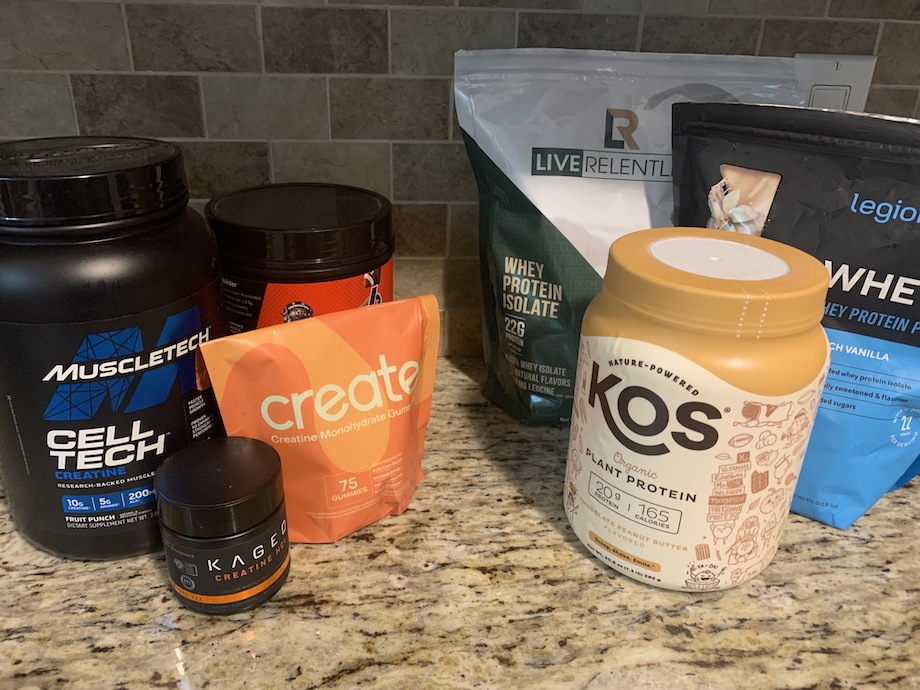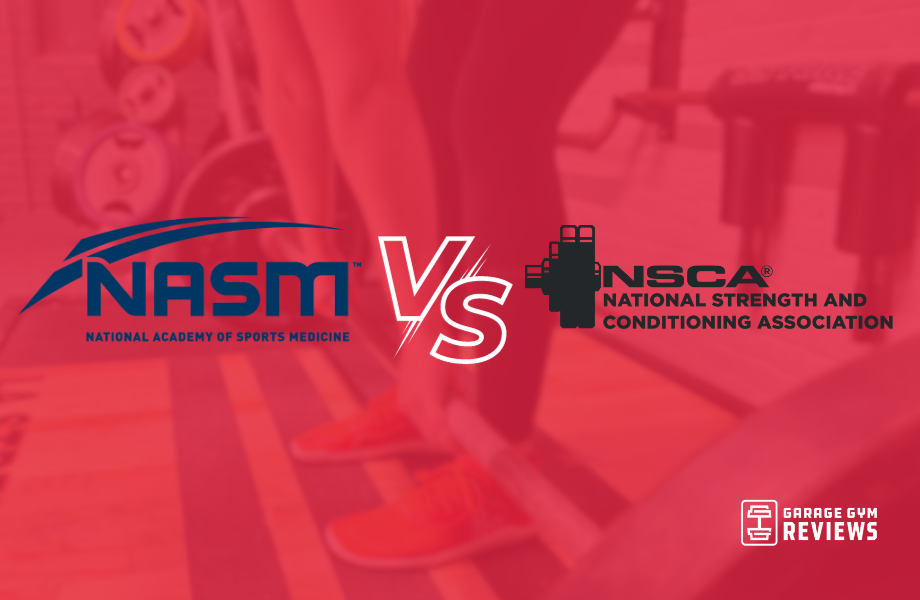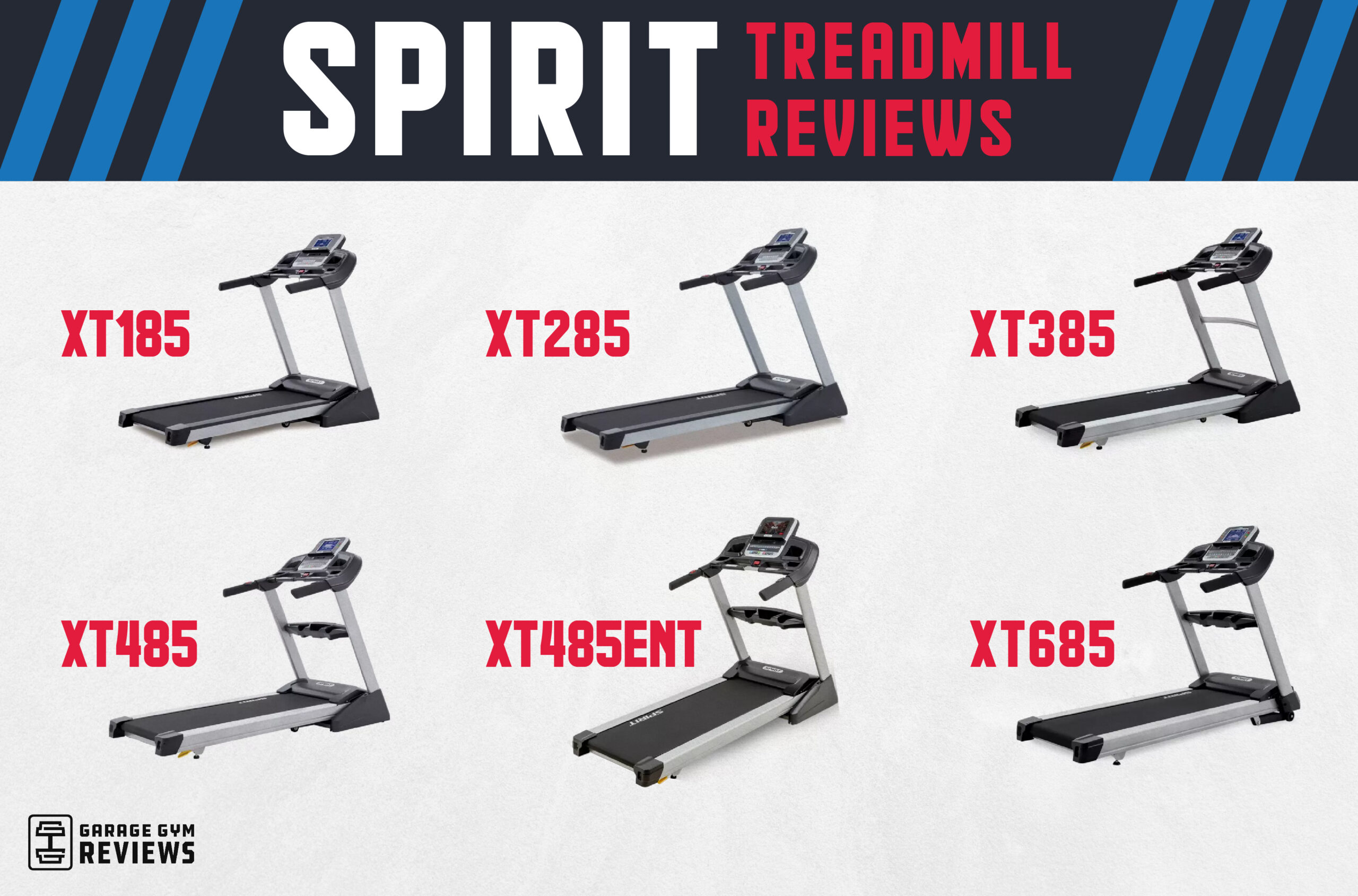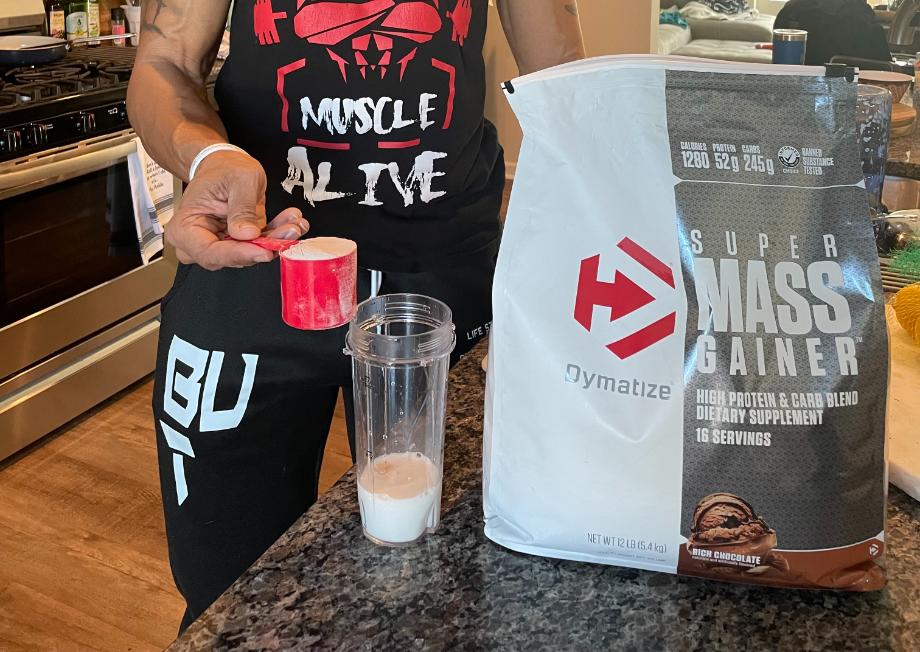There are two types of workout supplements that almost always come up when talking about muscle-building and weightlifting: whey protein and creatine monohydrate. This is probably because, out of the dizzying amount of workout supplements out there on the shelves, these are two that have the most science behind all of the hype.
Both creatine vs whey protein are most commonly taken close to resistance training and other forms of high-intensity exercise, either pre-workout or post-workout, with the hopes that they’ll improve exercise performance and boost muscle strength, recovery, and muscle mass.
So, since these two supplements are such big players in the game of muscle gains, it’s easy to assume that you should take the two together for double the effects, right? In this article, we’ll talk all about it. What creatine and whey protein are, how they are related, how they are different, and whether or not it is as critical as many may think to take both supplements simultaneously.
RELATED: Best Creatine
Medical disclaimer: This article is intended for educational and informational purposes only. It is not intended as a substitute for medical advice. For health advice, contact a licensed healthcare provider.
What Is Creatine?
Creatine is an organic compound made by combining three amino acids: methionine, glycine, and arginine. It can be found naturally in significant quantities in animal-based protein sources like red meat and seafood.
RELATED: What Is Creatine?
However, it’s most popularly consumed in supplement form, most commonly as creatine monohydrate, as a powder, capsule, or even a liquid. In cells, ATP, or adenosine triphosphate, is produced in the mitochondria as the energy source for the body. Creatine plays an essential role in this process as it pertains to athletic performance.
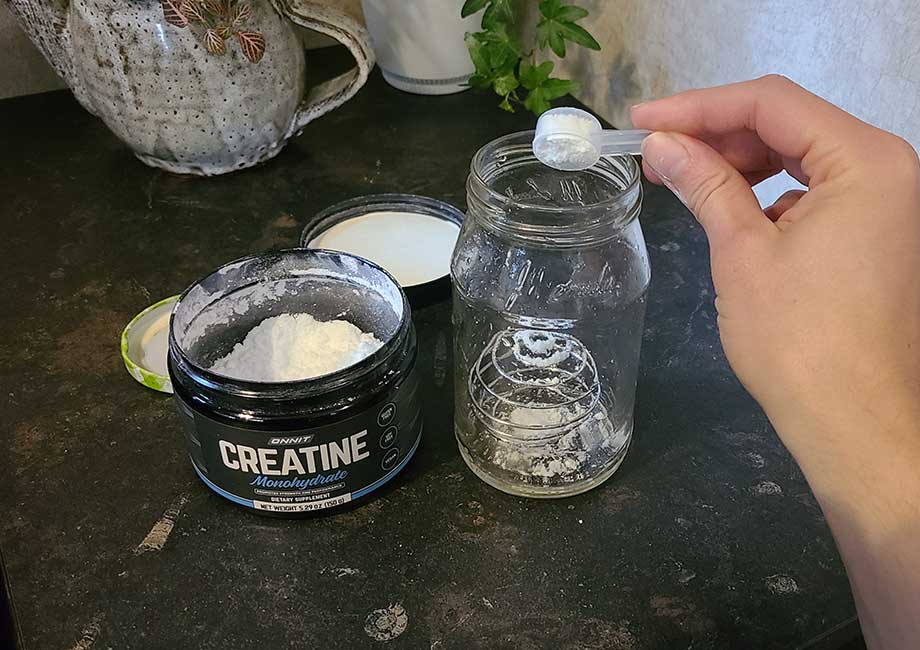
Adenosine triphosphate is converted to diphosphate, or ADP, by muscle cells by removing a phosphate molecule. When ADP loses its phosphate group, it cannot be used for energy, causing fatigue. However, creatine in the muscle tissue is stored in the form of phosphocreatine and it can give its phosphate molecule back to ADP to keep ATP available for muscle cells to use as fuel.
This means it provides the ability to perform high-intensity exercise longer1. Other creatine benefits include changing body composition, helping to improve muscle recovery, and boosting muscle strength.
What Is Whey Protein?
During the production of cheese, whey is produced as a byproduct. In the past, it was discarded as a waste product after milk was curdled and strained, with only the solid curds used to make cheese. However, scientists later found out that this “waste” was actually a very rich source of essential amino acids, making it a complete protein.
RELATED: What Is Whey Protein?
What is most important about the type of protein whey contains is that it has a high content of branched-chain amino acids, particularly leucine2. This inclusion of leucine is what makes whey so popular with fitness enthusiasts, athletes, and bodybuilders.
Whey as a nutritional supplement has one of the highest leucine contents when compared to similar protein sources. This is significant because several studies have shown that leucine intake, particularly from whey protein powder, plays an important role3 in muscle protein synthesis.
Whey protein supplements, when compared to other types of protein powders like casein, are the most quickly digested form of protein powder, ending up in your bloodstream to flood it with those sweet essential amino acids in less than an hour.
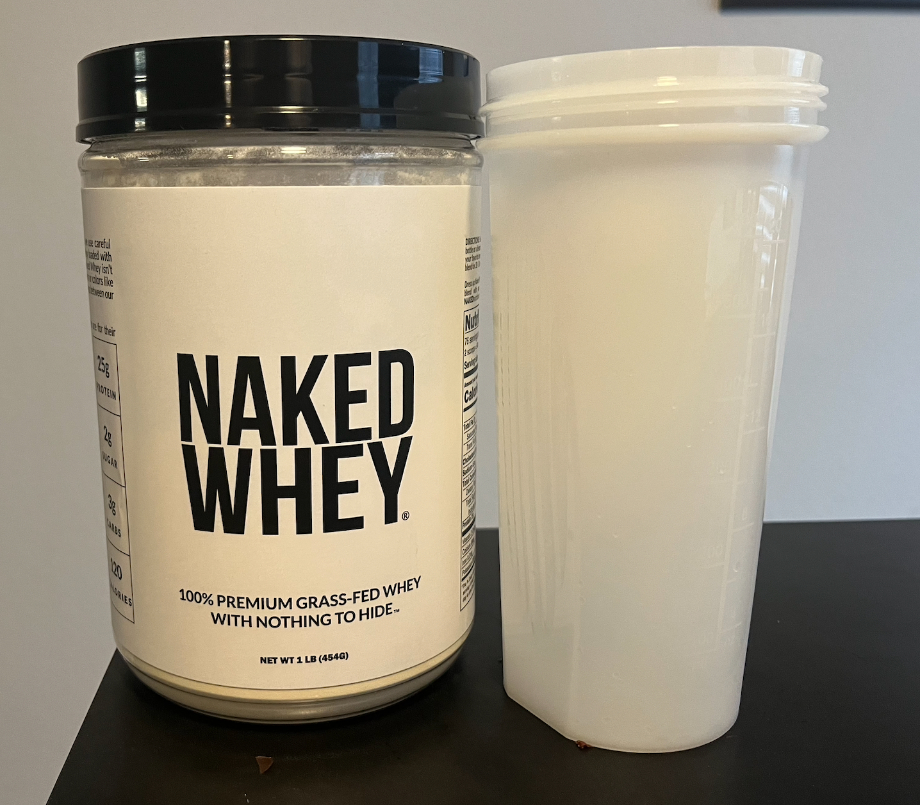
This is important to those who engage in resistance training, as skeletal muscle damage can lead to muscle loss if post-workout recovery doesn’t happen soon after the exercise is completed.
By providing your muscles with the BCAAs they need before significant breakdown occurs, you can mitigate muscle loss or prevent it altogether by consuming a fast-digesting protein like whey protein.
Creatine vs Whey: What’s the Difference?
Both creatine and whey are popular supplements for the enhancement of athletic performance and to generally meet fitness goals. However, while they both have similar benefits, there are key distinctions to be made, as well.
Both creatine and whey contain amino acids. However, creatine is only made up of three amino acids, while whey is a complete protein that contains all essential amino acids. Whey can also be used to help one achieve their required protein intake, while creatine is not a protein, and thus cannot contribute to your calorie or protein intake.
RELATED: How Much Protein Do I Need?
It should also be noted that whey is derived from a food, but it is made from milk. This means that, unlike creatine monohydrate, it is not vegan-friendly as a nutritional supplement.
Should You Take Creatine and Whey Together?
The benefits of creatine supplementation overlap pretty frequently with the benefits of whey supplementation, so it makes sense to assume that you can mix creatine with protein powder to enhance their effects.
However, this assumption is not completely supported by science. The International Society of Sports Nutrition has shown that creatine supplementation, when combined with the consumption of enough protein from dietary sources and carbohydrates, can produce more exercise performance and muscle-building benefits than diet or creatine alone. This means protein from whole foods, not supplements like whey protein.
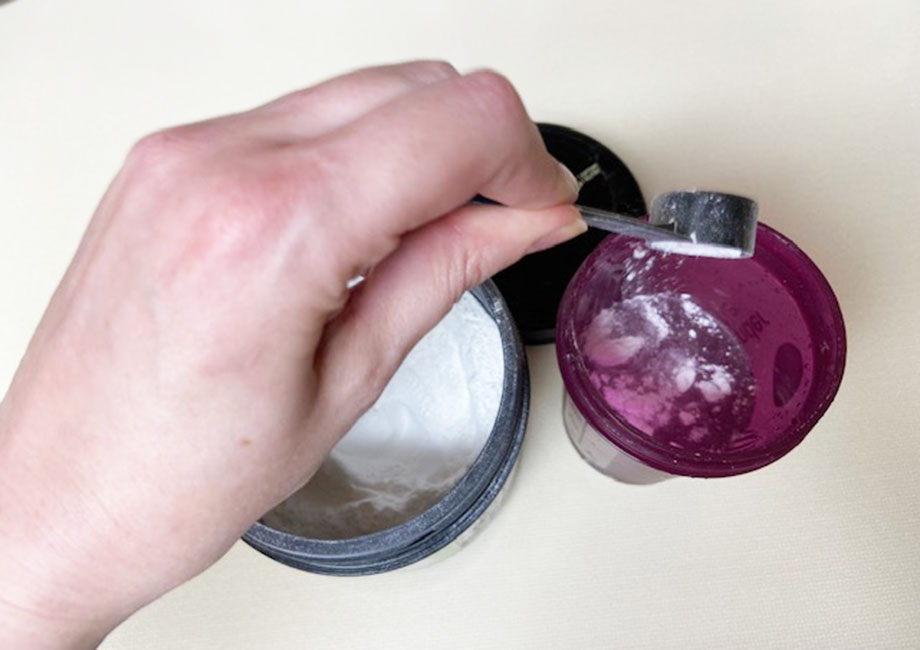
That said, several studies have shown that taking whey protein supplements along with creatine doesn’t provide any additional benefits5 than taking the two workout supplements alone6.
However, it may still be optimal to take the two popular supplements together, if not purely for convenience, as blending creatine into your protein shake can save you some time. This is especially notable for bodybuilders and other athletes who may be taking multiple sports nutrition supplements.
When to Take Creatine Supplements
It has been and still is a hotly contested debate on whether or not you should take creatine pre-workout and post-workout for the best benefits for muscle building and sports performance. According to one study, it was shown that subjects who took their creatine monohydrate close to exercise time experienced more muscle gains than those who did not7.
That said, this proximity to resistance exercise from a time standpoint does not make the distinction between pre-workout and post-workout. Both methods appear to be equally effective8 as long as you are taking the efficacious dose of 5 grams of creatine monohydrate9 during the time of your choosing.
RELATED: Do You Take Creatine Before or After a Workout?
When to Take Whey Protein Powder
One of the benefits of whey protein powder, as mentioned, is how quickly digestible it is. That means, depending on what your goals are, you should pay attention to the timing when you take your whey protein, or consume protein in general.
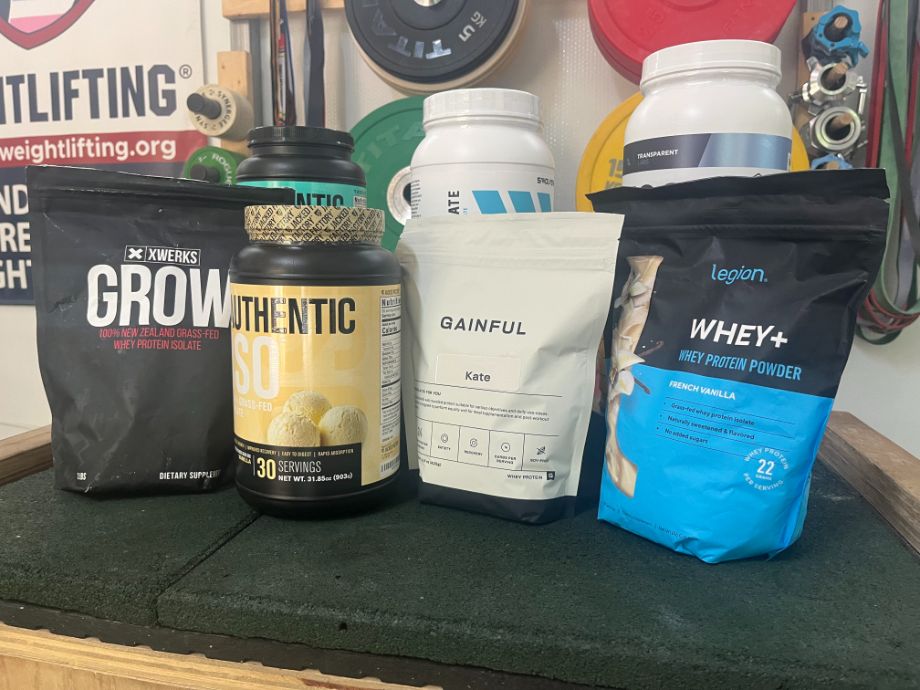
If you are going for weight loss, you should primarily take your whey protein whenever you feel you need a snack to replace something potentially higher in calories. High-quality protein has been shown to help reduce appetite10 which can help you maintain the calorie deficit that comes along with a weight loss diet.
RELATED: High-Protein Foods List for Weight Loss
For exercise performance, muscle recovery, and muscle growth, you should take your whey protein immediately after resistance training or to help you meet your macronutrient goals. In terms of muscle recovery and performance, getting your protein shake right after the weightlifting or training is done can help your muscles begin to repair the damage done to them more quickly.
In terms of building lean muscle mass, research is leaning more away from the idea of an “anabolic window,” or getting your post-workout protein in promptly, as the most important timing for muscle growth. It is now more likely that timing and portioning your protein evenly throughout the day is even more important11 along with meeting your daily protein goals.
Given that whey protein provides more than enough of the high-quality protein your lean muscle mass needs for its building blocks, it can be a very efficient way to meet those protein needs if you are having trouble hitting your macronutrient numbers from whole foods alone.
The only thing not necessarily recommended in terms of timing is taking your protein powder immediately before a workout. Given how long protein stays in the stomach, it likely won’t be fully digested by the time you start lifting.
Not only can this make you feel sick, which goes without saying is bad news for performance, but too much GI activity during physical activity pulls the blood supply away from the skeletal muscle and into the digestive tract, which can negatively impact strength and speed.
Benefits of Creatine
There are many short-term and long-term benefits associated with creatine monohydrate supplements. The benefits of creatine span from body weight and composition goals to potential enhancement in the performance of high-intensity exercise.
Boosts ATP Production
As mentioned, creatine can help improve ATP production which can help skeletal muscle contractions occur more frequently before fatigue sets in. Creatine supplementation was found to increase peak power output and overall sprinting speed by 4-7% in one recent clinical study12, and other studies have shown similar findings.

Promotes the Growth of Lean Muscle Mass
There is no doubt that this is one of the most established benefits associated with creatine based on the science conducted using creatine monohydrate. Numerous studies11 have shown that taking creatine supplements along with resistance exercise is effective in promoting muscle protein synthesis.
Support a Healthy Body Weight
Creatine supplements have been shown to reduce body fat percentage13 in resistance training participants compared to those who don’t take creatine, especially in those who are over the age of 50. Also, we know what you’re thinking. This change in body composition was not simply because subjects gained more lean mass, but fat mass was shown to be reduced (though pretty modestly) independent of muscle protein synthesis.
RELATED: Does Creatine Help You Lose Weight?
Assists in Increasing Muscle Strength
The most popular results showing the benefits of creatine on muscle strength were seen in a Penn State study13 that had healthy, adult men take 25 grams of creatine monohydrate daily. As a result, the men who took creatine were able to do 30% more reps than those who did not.
RELATED: Does Creatine Make You Stronger?
Benefits of Whey Protein
The benefits of whey protein powder and creatine overlap quite a bit. However, since they are different compounds, one being a protein and one just being an organic compound made from three amino acids, there are slightly different things they have to offer.
Promotes Satiety and Aids Weight Loss
As previously mentioned, protein, compared to the other two macronutrients, can keep you feeling fuller for longer, otherwise known as a feeling of satiety. In the stomach, untangling the amino acids from proteins is time-consuming due to their complex chemical structure. This keeps the contents of the stomach from dumping into the lower intestines as quickly, which means you can feel satiated for a much longer time.
A study14 found that overweight women who increased their protein intake but did not make any other dietary changes consumed nearly 450 fewer calories each day than those who did not due to this satiating effect.
RELATED: How to Get More Protein
Thus, you can use whey protein as a replacement for snacks, to supplement smoothies for a quick, yet complete breakfast, or as a supplement to take before a night out to prevent overeating. Using whey protein powder wisely to control hunger can go a long way in managing body weight.
Maintains Muscle Mass and Promotes Muscle Growth
It is essential to meet your protein needs if you want to maintain your muscle mass, let alone promote the growth of more muscle tissue. Your muscle can’t build new tissue from nothing, and high-quality protein sources contain the building blocks you need.
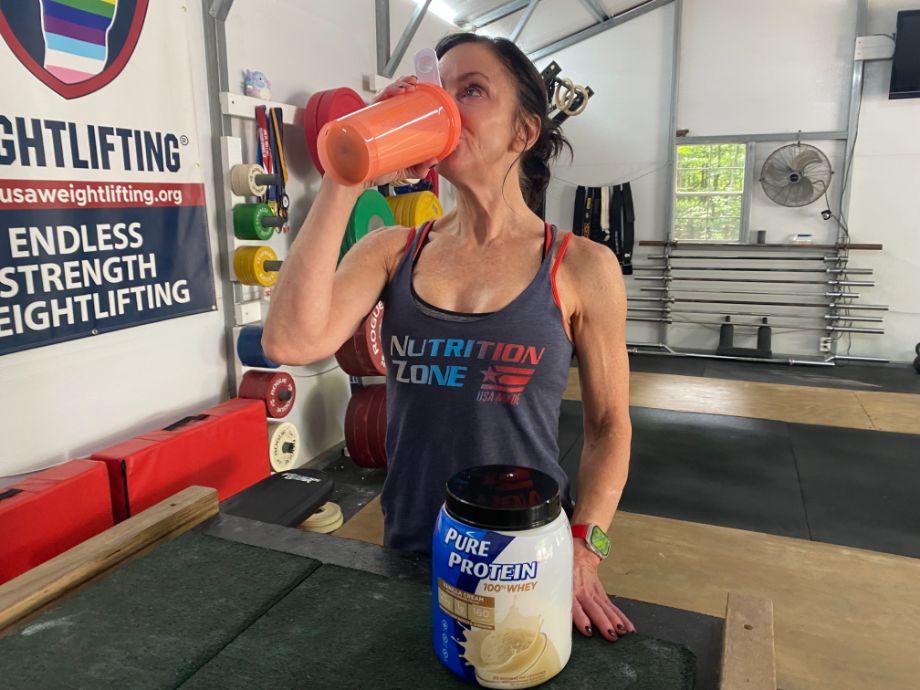
However, for those with very high protein needs or who have quite a bit of muscle mass to maintain, protein needs could get very high. So high in fact, that due to the satiating effect of protein, getting in enough protein from whole foods can be difficult. This is where whey protein can help fill in those gaps. Try having a protein shake right after your main meals or before bed to help hit your numbers.
Supports Athletic Performance and Muscle Recovery
For muscle contractions to occur optimally, feeding your body the amino acids it needs to nourish your muscle tissue is non-negotiable. For those who need to optimize their sports performance, like athletes, consuming essential amino acids from a source like whey protein supplements is affordable and effective.
A 2017 study15 found that consuming BCAAs improved the performance of athletes and reduced muscle soreness after resistance exercise compared to those who took a placebo. When taking into account serving size, cost, and quality, whey protein supplements are one of the best sources of BCAAs you can add to your weightlifting and nutrition regimen.
Creatine vs Whey: Final Thoughts
Although they are often grouped in the same category in conversations about the most popular supplements in sports nutrition, creatine and whey protein are not the same. One is an amino acid derivative of methionine, glycine, and arginine and the other is a protein source that contains calories and offers dozens of different amino acids.
Both can play important roles in muscle growth, performance, and changing body composition when dosed and timed properly. While you can take the two compounds together for convenience, there isn’t a lot of evidence that doing so will provide you with additional benefits than taking them alone.
Although supplements can be a convenient way to get in certain beneficial compounds, always remember that supplements are meant to supplement your diet, not make up the bulk of it. Meeting your macronutrient goals and basing your nutrition regimen around whole foods while using dietary supplements to fill the gaps is the best way to maintain your wellness and performance.
Creatine vs Whey: FAQs
Which is better whey or creatine?
It depends on your fitness goals, but whey protein might have a slight edge. This is because whey protein does most of the things creatine can do in terms of helping with muscle gains, strength, and performance. However, whey protein can also contribute to protein intake, which creatine cannot.
Why creatine is better than whey?
Creatine is only better than whey in the context of weight loss as creatine does not provide calories. Both can help with muscle protein synthesis, but use their own unique mechanisms.
Does creatine build more muscle than whey protein?
When timed properly, both workout supplements have the ability to trigger muscle building.
Should you take creatine and whey protein?
If you would like to reap the benefits of both supplements, you can certainly include both of them in your workout regimen. In spite of this, it’s not advised that you take both at the same time in the hopes of getting more benefits than just convenience.
These statements have not been evaluated by the Food and Drug Administration. This product is not intended to diagnose, treat, cure, or prevent any diseases.
References
- Wu SH, Chen KL, Hsu C, et al. Creatine Supplementation for Muscle Growth: A Scoping Review of Randomized Clinical Trials from 2012 to 2021. Nutrients. 2022;14(6):1255. Published 2022 Mar 16. doi:10.3390/nu14061255
- Hamarsland H, Nordengen AL, Nyvik Aas S, et al. Native whey protein with high levels of leucine results in similar post-exercise muscular anabolic responses as regular whey protein: a randomized controlled trial. J Int Soc Sports Nutr. 2017;14:43. Published 2017 Nov 21. doi:10.1186/s12970-017-0202-y
- Bukhari SS, Phillips BE, Wilkinson DJ, et al. Intake of low-dose leucine-rich essential amino acids stimulates muscle anabolism equivalently to bolus whey protein in older women at rest and after exercise. Am J Physiol Endocrinol Metab. 2015;308(12):E1056-E1065. doi:10.1152/ajpendo.00481.2014
- Buford TW, Kreider RB, Stout JR, et al. International Society of Sports Nutrition position stand: creatine supplementation and exercise. J Int Soc Sports Nutr. 2007;4:6. Published 2007 Aug 30. doi:10.1186/1550-2783-4-6
- Burke DG, Chilibeck PD, Davidson KS, Candow DG, Farthing J, Smith-Palmer T. The effect of whey protein supplementation with and without creatine monohydrate combined with resistance training on lean tissue mass and muscle strength. Int J Sport Nutr Exerc Metab. 2001;11(3):349-364. doi:10.1123/ijsnem.11.3.349
- Outlaw J, Burks B, Hayward S, et al. Effects of post-exercise whey protein vs. whey protein plus creatine consumption in females. J Int Soc Sports Nutr. 2013;10(Suppl 1):P20. Published 2013 Dec 6. doi:10.1186/1550-2783-10-S1-P20
- Cribb PJ, Hayes A. Effects of supplement timing and resistance exercise on skeletal muscle hypertrophy. Med Sci Sports Exerc. 2006;38(11):1918-1925. doi:10.1249/01.mss.0000233790.08788.3e
- Candow DG, Zello GA, Ling B, et al. Comparison of creatine supplementation before versus after supervised resistance training in healthy older adults. Res Sports Med. 2014;22(1):61-74. doi:10.1080/15438627.2013.852088
- Antonio J, Candow DG, Forbes SC, et al. Common questions and misconceptions about creatine supplementation: what does the scientific evidence really show?. J Int Soc Sports Nutr. 2021;18(1):13. Published 2021 Feb 8. doi:10.1186/s12970-021-00412-w
- Halton TL, Hu FB. The effects of high protein diets on thermogenesis, satiety and weight loss: a critical review. J Am Coll Nutr. 2004;23(5):373-385. doi:10.1080/07315724.2004.10719381
- Schoenfeld BJ, Aragon AA, Krieger JW. The effect of protein timing on muscle strength and hypertrophy: a meta-analysis. J Int Soc Sports Nutr. 2013;10(1):53. Published 2013 Dec 3. doi:10.1186/1550-2783-10-53
- Bogdanis GC, Nevill ME, Aphamis G, et al. Effects of Oral Creatine Supplementation on Power Output during Repeated Treadmill Sprinting. Nutrients. 2022;14(6):1140. Published 2022 Mar 8. doi:10.3390/nu14061140
- Kreider RB. Effects of creatine supplementation on performance and training adaptations. Mol Cell Biochem. 2003;244(1-2):89-94.
- Weigle DS, Breen PA, Matthys CC, et al. A high-protein diet induces sustained reductions in appetite, ad libitum caloric intake, and body weight despite compensatory changes in diurnal plasma leptin and ghrelin concentrations. Am J Clin Nutr. 2005;82(1):41-48. doi:10.1093/ajcn.82.1.41
- Waldron M, Whelan K, Jeffries O, Burt D, Howe L, Patterson SD. The effects of acute branched-chain amino acid supplementation on recovery from a single bout of hypertrophy exercise in resistance-trained athletes. Appl Physiol Nutr Metab. 2017;42(6):630-636. doi:10.1139/apnm-2016-0569


